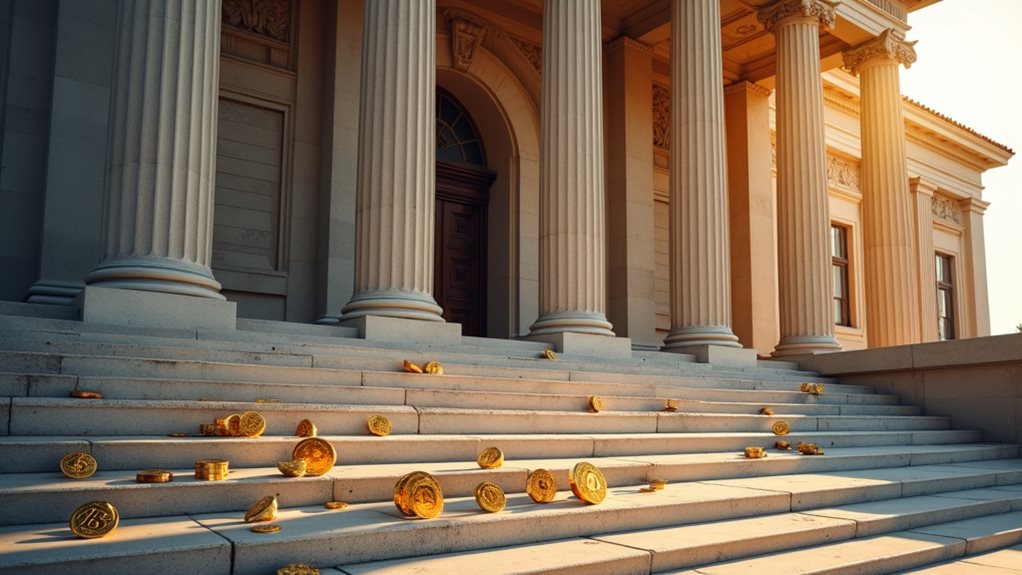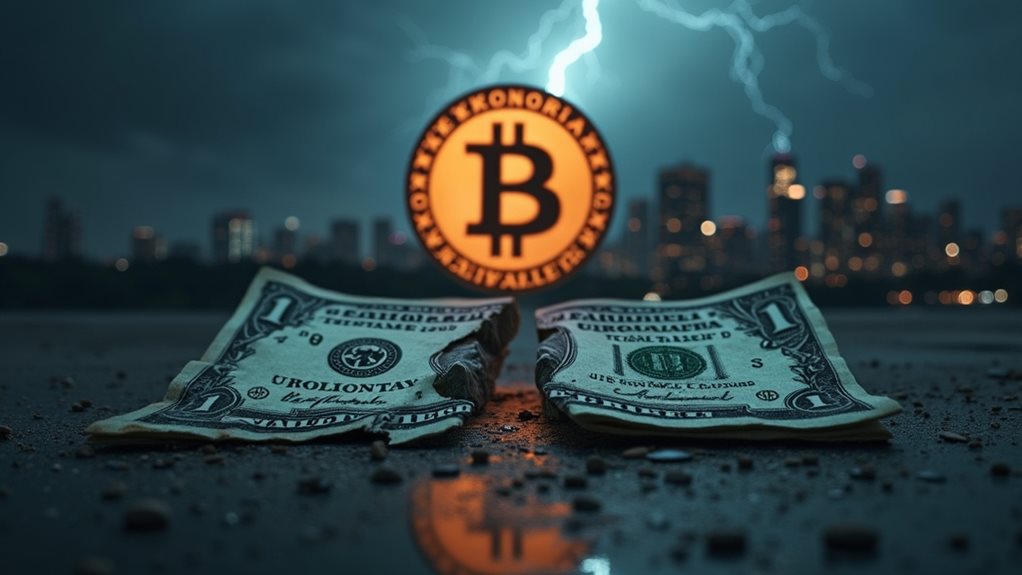PayPal finally decided to welcome the crypto chaos, allowing U.S. merchants to accept over 100 cryptocurrencies including Bitcoin, Ethereum, and XRP. The payments get instantly converted to USD or PayPal’s own stablecoin PYUSD, because nobody wants to deal with crypto’s wild price swings. Merchants pay just 0.99% in fees for the first year, then 1.5% after that. Customers can pay using wallets like Coinbase or MetaMask at checkout. There’s more to this crypto revolution than meets the eye.

PayPal just cracked open the crypto floodgates for U.S. merchants. The payment giant now lets businesses accept over 100 cryptocurrencies, from Bitcoin and Ethereum to XRP, USD Tether, and Solana. Yes, even Trump’s memecoin made the cut. Because apparently, that’s where we are now.
Any U.S. business using PayPal‘s platform can flip the crypto switch. Customers pay with their existing wallets like Coinbase or MetaMask at checkout. Simple enough. PayPal instantly converts whatever digital coins hit their system into good old USD or their own stablecoin, PYUSD. Merchants never have to touch the actual crypto.
The fee structure might actually make sense for once. PayPal charges 0.99% for the first year, then bumps it to 1.5%. That’s still cheaper than typical credit card fees, which run 1.5% to 3.5%. For international transactions, PayPal claims their fees are 90% lower than traditional credit card processing. Those savings add up fast.
The conversion happens through centralized exchanges like Coinbase or decentralized ones like Uniswap, depending on the wallet. PYUSD maintains a 1:1 parity with the dollar, so merchants get predictable value. They can hold PYUSD balances and earn 4% annual rewards, or cash out to USD immediately. The stablecoin has gained serious traction with its market capitalization increasing by about 70% since the beginning of the year. The integration of Kamino Meta-Swap on Solana’s network enhances the overall trading efficiency for merchants.
This setup tackles the biggest headache with crypto payments: volatility. A Guatemalan shopper can buy from an Oklahoma business without either party sweating exchange rates or conversion delays. The merchant gets paid quickly in stable currency.
PayPal’s move signals something bigger. They’re betting the future of payments lives “on chain,” mixing traditional and crypto rails. It’s part of their broader push into digital assets and blockchain payments globally. The timing aligns with Trump signing the GENIUS Act, establishing the first federal regulatory framework for cryptocurrency.
The service supports everything from major cryptocurrencies to random altcoins and novelty tokens. Cross-chain payments work within one checkout experience. PayPal fundamentally becomes a bridge between the wild west of crypto and the structured world of merchant payments.
For businesses tired of international payment complexity and hefty fees, this could be a game-changer. For crypto enthusiasts who actually want to spend their digital coins, it’s about time.









